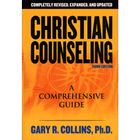Tuesday, August 21, 2007
Amazing Grace: Let us never fail to fight for social injustic, for those who cannot fight for themselves...
Those who have not watched the movie Amazing Grace should go borrow the DVD...
"Amazing grace, how sweet the sound, that saved a wretch like me." Those familiar words open perhaps the most famous and beloved hymn of all time. There's no doubt that this powerful hymn has helped save countless souls. But few of us are aware of the pivotal role it played in saving countless lives from the cruel bonds of slavery. The movie, Amazing Grace, is a powerfully inspiring account of the life of English parliamentarian and abolitionist William Wilberforce and his lifelong struggle to end the British slave trade-a mission inspired and urged on by John Newton, a redeemed "wretch," and the amazing hymn he wrote.
Great Britain banned the slave trade a generation before America did, and then abolished slavery altogether. More than anyone else, William Wilberforce was the driving force behind this legislation. The son of a wealthy merchant, the naturally kind-hearted "Wilber" gravitated towards social causes, inviting beggars in for lunch and advocating kindness to animals. At 21 he was elected to the House of Commons, along with school friend William Pitt, who was destined to become Britain's youngest Prime Minister. Ioan Gruffudd and Benedict Cumberbatch shine as Wilberforce and Pitt, two political firebrands old enough to know what they want to accomplish, but young enough to still believe they can change the world. Young Wilber passionately believes that the odious institution of slavery must be abolished.
Spurred on by the Christian conviction that God "created all men as equals," Wilber made it his life's work to convince Parliament to abolish slavery. The film begins in 1797, at which time 11 million black men, women and children had been snatched from their homes in Africa and the West Indies and forced into slave labor, mostly on the sugarcane plantations in the Caribbean. The sea passage was particularly inhumane. Slaves were chained into coffin-sized wooden compartments with little food or water and no sanitation. Half of those captured died before reaching shore and, we are told, the chains were used to keep them from ending their suffering by jumping overboard.
Directed by seasoned pro Michael Apted (Coal Miner's Daughter), Amazing Grace is anything but a stuffy period piece. He coaxes dynamic performance from his two leads—particularly Gruffudd as the driven, but fragile Wilberforce—and a veteran British cast that includes Michael Gambon, Toby Jones and the towering Albert Finney as John Newton the ex-slave ship captain, who repented, turned to the ministry and wrote, among many other hymns, "Amazing Grace." The action shuttles adroitly between Wilber's early struggles against an intransigent Parliament and his later success in ending slave trafficking and slavery itself with decisive laws in 1807 and finally 1833, just days before his death.
Amazing Grace is a portrait of faith and persistence of the highest order. It boldly tackles the debate between principle and practicality. Pitt, as Prime Minister, must consider political survival, balancing the complex economic impact of abolition and the art of "the possible." Wilberforce's single-minded devotion to the abolitionist cause at the exclusion of almost everything else—including his own health—caused him to be described by friends as "all spirit and no body."
Perhaps most stirring and enlightening is the film's depiction of the relationship between Wilberforce and John Newton, his childhood friend and adult mentor. Only the saving, redeeming grace of God sustains Newton who admits to being "haunted by 20,000 ghosts" from his slaver days. Though forgiven, he remains so overwhelmed by the depth of his past sin that he chooses to live out the remainder of his days as a simple pastor in service to the church. When Wilber comes to him for guidance following his own religious reawakening, Newton urges him not to seek spiritual solitude, but to put his convictions into action and work to abolish the inhumanity of slavery. Their scenes together are electric and grapple with the dynamic between faith and action, social responsibility and monk-like piety. As Newton wisely reminds him, Christianity "leads to action, as well as reflection."
2007 marks the 200th anniversary of the passing of Wilberforce's most critical anti-slavery legislation, and I could give you 200 reasons to see this inspiring film. Instead I'll give you just one: You will leave the theatre feeling renewed. Amazing Grace will recharge you with a positive message about the power of faith, the belief that good people can change a nation, the conviction that God's grace is indeed so amazing that anyone can be saved, and—just as the song says—the assurance that grace will, in the end, "lead us home." Only one question remains: 200 years later, slavery still persists in many parts of the world, including Cambodia, India and Peru. Will grace inspire a new generation of "Wilberforces" to take a stand and end slavery once and for all? That would indeed be the result of amazing Grace.
Amazing Grace MTV by Chris Tomlin
Subscribe to:
Post Comments (Atom)

No comments:
Post a Comment